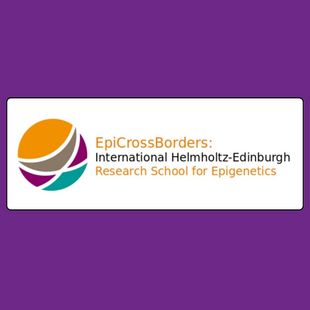the Helmholtz Epigenetics@HMGU community launched its own PhD training program in 2018: the Helmholtz International Epigenetics Research School. Now, our new collaboration with the University of Edinburgh epigenetics communities from the Wellcome Trust Centre for Cell Biology, MRC Human Genetics Unit, and Centre for Regenerative Medicine, allows us to take the next step in the development of our PhD training program in EpiCrossBorders: International Helmholtz-Edinburgh Research School for Epigenetics. EpiCrossBorders receives its funding from Helmholtz Zentrum München, the Initiative and Networking Fund of Helmholtz Association and the partners from Edinburgh.
The first international call of the EpiCrossBorders program is open from now, until December 4th 2020.
EpiCrossBorders is an international and interdisciplinary PhD training program centered on epigenetics research at the Helmholtz Zentrum München HMGU, in Munich, Germany and at the Edinburgh University in Edinburgh, UK. PhD projects in EpiCrossBorders at the Helmholtz Zentrum are funded three year projects that are international collaborations between labs in Munich and Edinburgh. To fully include both collaborating groups each PhD project includes an exchange program between the collaborating labs.
The EpiCrossBorders research areas encompas research from Single Cells to Human Health, Quantitative Approaches to Study Epigenetics Phenomena, Linking environmental stress and its impact on epigenetic processes, Artificial Intelligence to unravel and implement complex epigenetics data as well as Understanding the epigenetic mechanisms underlying health and disease.
The communities united in EpiCrossBorders do not only combine their expertise with regards to research, but also in an adjustable training program that covers scientific and professional training, bridges science and society and offers dedicated career support. Through our program we aim to provide our students with the tools they need to prosper and forge their own future careers as experts in the field of epigenetics or otherwize.
Finally, EpiCrossBorders allows us to build a platform that supports both existing and the formation of new collaborations between its two communities. This allows us to contribute to a foundation for a joined international Helmholtz-Edinburgh epigenetics community bridging both Research centers, increasing their potential, visibility, outreach and impact.






